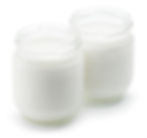Nutritious Homemade Dog Food Recipe to Soothe Itchy Skin
- Dr Andrew Matole, BVetMed, MSc
- Feb 19, 2024
- 3 min read
Updated: Feb 19, 2024

When addressing a dog's itchy skin with homemade food, it's essential to focus on ingredients that are hypoallergenic, meet specific nutritional needs, balanced and nutritious to help alleviate inflammation and the symptoms. It's also crucial to consult with a veterinarian to determine the underlying cause of the itchiness and to ensure the chosen treatment aligns with the dog's specific needs. While homemade remedies can be helpful, they might not address the root cause of the itchiness, which could be due to allergies, parasites, skin infections, or other medical conditions. A recipe for a homemade meal that may help soothe and alleviate a dog's itchy skin may include the following:

1. Omega-3 Fatty Acids: Foods rich in omega-3 fatty acids, such as fish oil, can help improve your dog's skin and coat health. Omega-3 fatty acids have anti-inflammatory properties that can reduce itching and inflammation associated with skin conditions.

2. Coconut Oil: Coconut oil may have antibacterial, antiviral, and antifungal properties, which can help soothe itchy skin and moisturize dry skin. A small amount of coconut oil can be added into a dog's food or applied directly to the affected areas of their skin.

3. Plain Yogurt: Plain yogurt contains probiotics, which can support a dog's digestive health and immune system. A healthy gut can contribute to overall skin health and reduce the risk of skin issues that may cause itching.

4. Lean Proteins: Incorporating lean proteins, such as chicken or turkey, into your dog's diet can provide essential nutrients for skin and coat health. The meat needs to be thoroughly cooked and any bones removed.

5. Sweet Potatoes: Sweet potatoes are a good source of vitamins and antioxidants, which can promote healthy skin and alleviate itching. Sweet potatoes can be cooked and mashed as a tasty addition to a dog's meal.

6. Oatmeal: Oatmeal baths can soothe irritated skin and provide relief from itching. Plain, uncooked oats can be ground into a fine powder and then added to a dog's bathwater, or oatmeal-based shampoos designed specifically for dogs can be used.
Ingredients:
Protein Source: Choose lean protein source such as boiled chicken, turkey, lean beef or fish. These options are less likely to trigger allergic reactions in dogs with sensitive skin.
Carbohydrates: Opt for easily digestible whole grains and carbohydrates like sweet potatoes, quinoa, oats or brown rice.
Vegetables: Use non-allergenic vegetables like green beans, sweet potatoes, carrots, or spinach.
Healthy Fats: Include sources of healthy fats such as olive oil or coconut oil.
Supplements (optional): Consider adding supplements like omega-3 fatty acids (e.g., fish oil or flaxseed oil) to help reduce inflammation and support skin health.
Instructions:
Cook the lean protein source thoroughly, removing any bones, skin, and excess fat.
Cook the whole grains or carbohydrates according to package instructions.
Steam, lightly cook or boil the vegetables until they are tender and soft.
Add a tablespoon of healthy fat such as olive oil or coconut oil.
Mix the cooked protein, whole grains, and vegetables together in a balanced ratio.
Add a recommended amount of supplements, e.g. omega-3 fatty acids, following the recommended dosage and mix them into the food.
Feeding Instructions:
Serve the homemade food in appropriate portions based on the dog's size, age, and activity level.
Monitor the dog's response to the new diet. If there is any adverse reaction noted, consult a veterinarian.
Why This Recipe May Help:
Lean Protein:
Provides essential amino acids for skin and coat health.
Easily Digestible Carbohydrates:
Reduce the risk of triggering food allergies or sensitivities.
Healthy Fats:
Support skin hydration and reduce inflammation.
Vegetables:
Offer vitamins, minerals, and antioxidants that promote overall health.
Conclusion

Remember, while these homemade remedies may provide some relief, they are not a substitute for professional veterinary care. If the dog is experiencing persistent itching or skin problems, it's essential to seek guidance from a veterinarian to identify and address the underlying cause.
Additionally, always introduce new foods gradually to monitor for any adverse reactions, avoid digestive upset and essentially providing fresh water at all times. Consult with a veterinarian before making significant changes to a dog's diet.
Always consult a veterinarian before making significant changes to a dog's diet or if the dog's skin condition persists or worsens.
References:
Osborne, C. A., & Lulich, J. P. (2016). Handbook of Canine and Feline Nephrology and Urology. W.B. Saunders.
Case, L. P., Daristotle, L., Hayek, M. G., & Raasch, M. F. (2011). Canine and Feline Nutrition: A Resource for Companion Animal Professionals. Mosby.
WSAVA Guidelines on Selecting Pet Foods - https://wsava.org/global-guidelines/global-nutrition-guidelines/
National Center for Biotechnology Information (NCBI) - Omega-3 fatty acids: Evidence for their role in the treatment and management of allergic diseases: https://www.ncbi.nlm.nih.gov/pmc/articles/PMC3257642/
Veterinary Dermatology - A review of fatty acid profiles and antioxidant content in grass-fed and grain-fed beef: https://onlinelibrary.wiley.com/doi/full/10.1111/j.1365-3164.2008.00671.x
